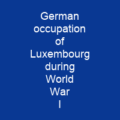Discovering the Rich History and Modern Marvels of Luxembourg
Imagine a tiny country nestled in Western Europe, where history whispers through ancient walls and modernity thrives in bustling cities. Welcome to Luxembourg, a land that has seen empires rise and fall, yet remains steadfast in its unique identity.
The Ancient Roots of Luxembourg
How did Luxembourg come into existence? The area was settled as early as 35,000 years ago during the Paleolithic Age. Over time, it became part of the Roman Empire and later saw the rise of the House of Luxembourg, which would go on to shape European history.
A Nation Emerges
When did Luxembourg truly become a nation? After Napoleon’s defeat in 1815, the Duchy of Luxembourg was restored. However, its borders and sovereignty faced numerous challenges, including disputes with neighboring countries like Belgium. The Treaty of London in 1839 finally established Luxembourg’s modern-day borders.
The Golden Age of Luxembourg
What made the House of Luxembourg so influential? From the 14th to the early 15th century, three members of the House of Luxembourg reigned as Holy Roman Emperors and Bohemian Kings. The ascension of Henry VII marked the beginning of the Golden Age of Luxembourg, where the dynasty began to rule the Holy Roman Empire.
Modern Challenges and Triumphs
How did Luxembourg navigate through World War I and II? During World War I, Imperial Germany invaded Luxembourg. Despite this, the country managed to maintain much of its independence during the war. In World War II, Nazi Germany occupied Luxembourg but treated it as German territory informally annexed to Gau Moselland.
A Global Financial Hub
What makes Luxembourg a global financial center? After the decline of its steel industry, Luxembourg developed into a knowledge economy with a focus on education and space exploration. It adopted the euro in 1999 and became a non-permanent member of the UN Security Council.
The Political Landscape
How does Luxembourg’s government work? Luxembourg is a parliamentary democracy with a unicameral legislature of sixty members elected to five-year terms. The grand duke exercises executive power, has the power to dissolve the legislature, and serves as Commander-in-Chief of the armed forces.
Economic Powerhouse
What drives Luxembourg’s economy? With a highly developed economy, moderate growth, low inflation, and innovation, Luxembourg ranks high in various economic indices. It is home to the world’s second-largest investment fund center and has established itself as a global financial center.
Culture and Language
How does language shape Luxembourg’s culture? Luxembourg has no official language but considers Luxembourgish its national language, which is mutually intelligible with German dialects. French and German are also used in administrative and judicial matters. Despite this, the country remains multilingual, with English widely spoken.
Cuisine and Media
What does Luxembourg’s cuisine offer? Reflecting its position between France and Germany, Luxembourg’s cuisine is a blend of both cultures. It has been enriched by Italian and Portuguese immigrants. The country also boasts the second highest number of Michelin-starred restaurants per capita.
Media Landscape
How does media play a role in Luxembourg? The main languages of media are French and German, with newspapers often alternating articles in both languages. Radio Luxembourg and RTL Group are well-known stations, while SES is the uplink home for major European satellite services.
A Multicultural Society
How diverse is Luxembourg’s population? With a population of about 600,000, Luxembourg has seen an influx of immigrants from various countries. The majority of residents are multilingual and can speak French, German, and English fluently.
Religion in Luxembourg
What is the religious landscape like? While 87% of Luxembourgers identify as Catholic, there is a significant diversity in other religions. The country remains secular but recognizes certain religions officially for administrative purposes.
Sports and Entertainment
How does Luxembourg engage in sports? Sports are not concentrated on one particular sport; instead, the country hosts over 100,000 licensed members of various sports federations. The Stade de Luxembourg is the national stadium, while d’Coque is the largest indoor venue.
Cultural Achievements
What cultural achievements has Luxembourg produced? Luxembourg has hosted the Eurovision Song Contest multiple times and was named European Capital of Culture twice. It also won an Oscar in 2014 for its animated short film, Mr Hublot.
A Secular State
How is religion handled in Luxembourg? The country is secular but recognizes certain religions officially for administrative purposes. While the majority of residents are Catholic, there is a significant diversity in other religious communities.
Educational System
What does education look like in Luxembourg? The education system is trilingual: Luxembourgish, German, and French. English is taught in compulsory schooling, and most of the population can speak multiple languages fluently.
A Global Player
How does Luxembourg contribute to global affairs? As a founding member of the European Union, NATO, and the OECD, Luxembourg plays a significant role in shaping policies that affect Europe and beyond. Its commitment to innovation and education makes it a leader in various fields.
Conclusion
Luxembourg is more than just a small country; it’s a microcosm of global influence and cultural diversity. From its rich history to its modern achievements, Luxembourg continues to thrive as a unique player on the world stage.

You want to know more about Luxembourg?
This page is based on the article Luxembourg published in Wikipedia (retrieved on March 7, 2025) and was automatically summarized using artificial intelligence.





